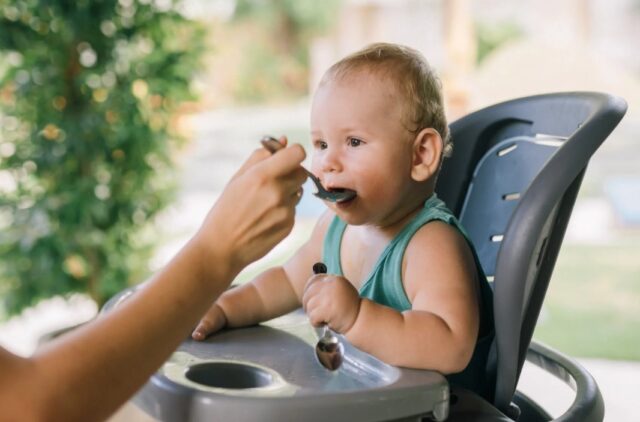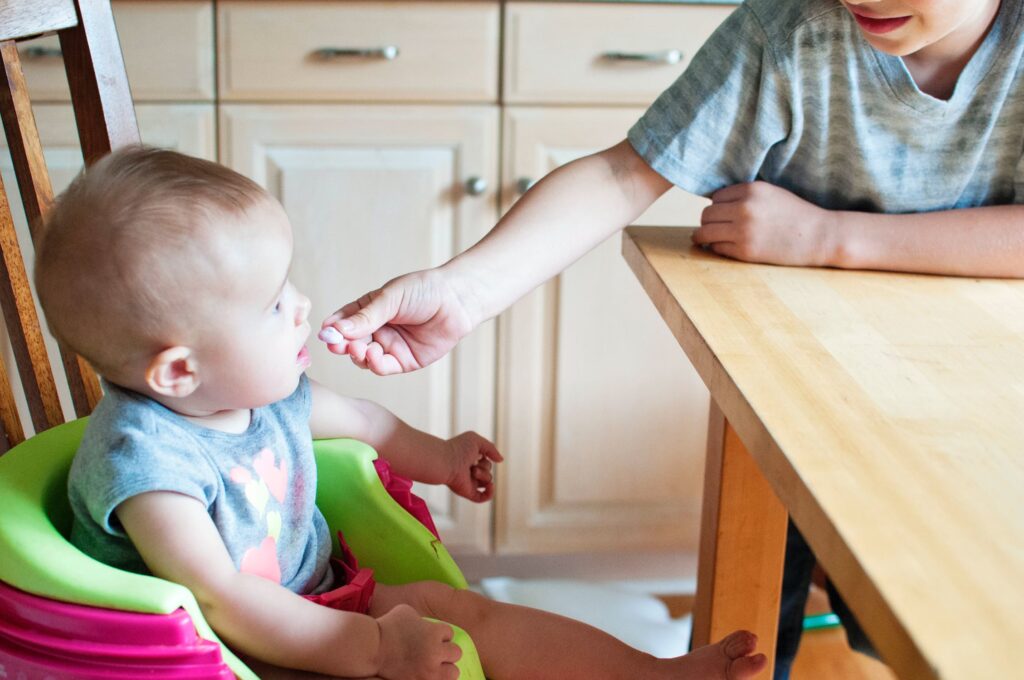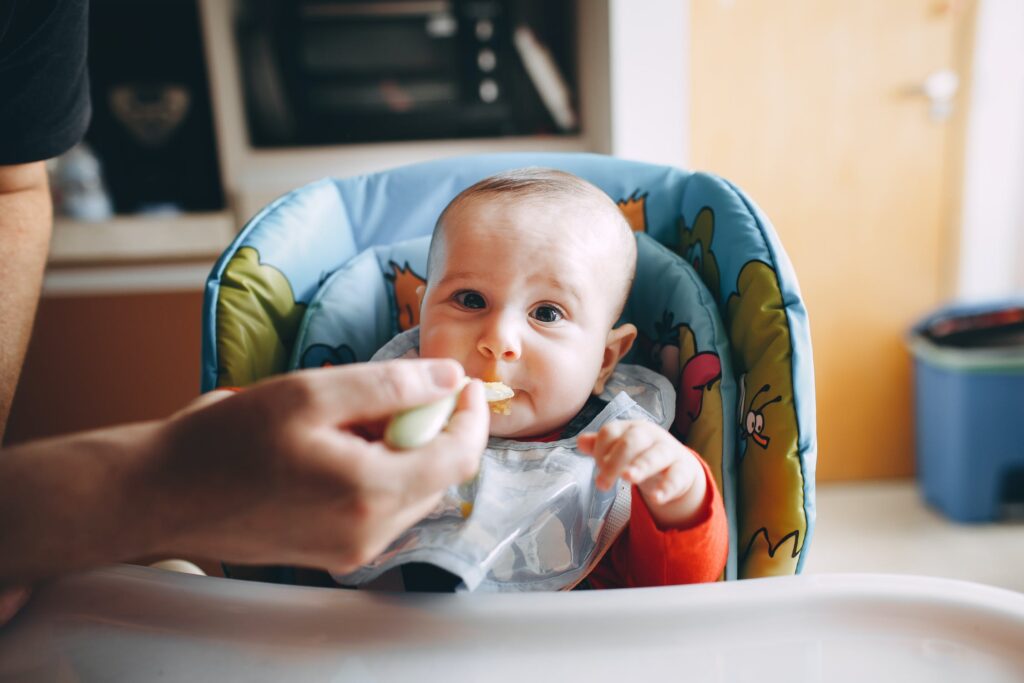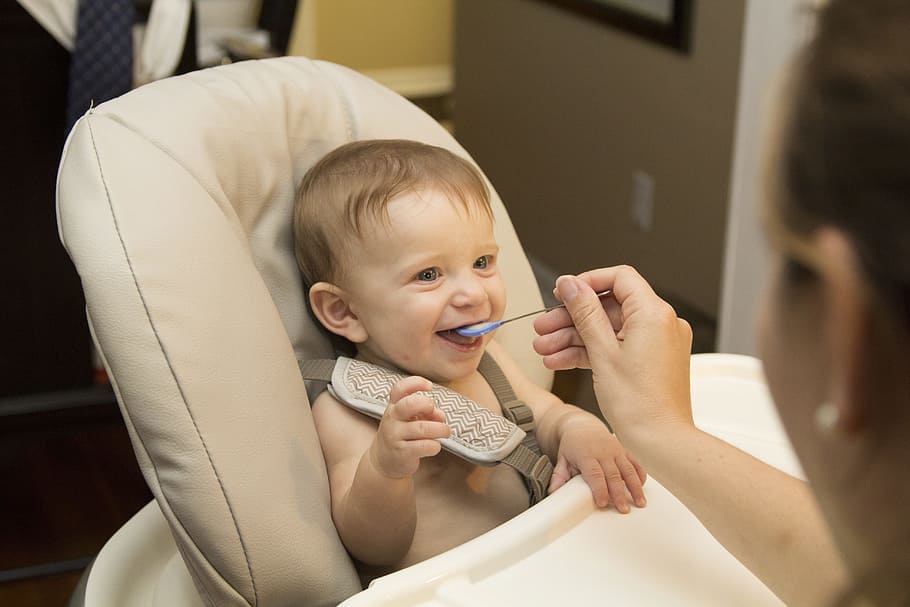
Nutrition during the first year of your baby’s life is essential for proper growth and development. Starting good eating habits at an early stage will help set healthy eating patterns for life. Feeding should be based on your baby’s readiness, feeding skills and developmental age.
In the first year of your baby’s life, your baby will eat a variety of things. These foods will support your baby’s growth and development.
Choosing the right feeding in the early years of life is particularly important due to its rate in reducing mortality and morbidity, reducing chances of chronic diseases and illnesses throughout your baby’s life span. Also, majority of your baby’s mental and physical development depends on feeding.
It is important to feed your baby with healthy foods during their first year, as it helps with a better development. Creating good eating habits from the beginning is one of the best patterns to start in your child’s life to assist with better growth.
When To Start Feeding

Your baby can start eating solid foods from about 6 months old. By the time they are 7 or 8 months old, your child can eat a variety of foods from different food groups. These foods include infant cereals, meat or other proteins, fruits, vegetables etc. It isn’t advisable to feed your baby solid food before 6 months because:
• breast milk contains all the necessary nutrients your baby needs for a healthy growth
• feeding a child solid food too early in life could lead to overfeeding which is one of the main causes of overweight or obesity in children.
• your baby’s digestive system isn’t mature enough to digest solid foods
Weaning

This is the period of introduction of solid food to a child. Early introduction of solid food can cause your baby to have diarrhea or constipation, and other gastrointestinal problems like celiac or fatty stools. Weaning should be done slowly to prevent choking. Start with one food at a time and avoid mixing ingredients. This way it is easier to spot allergens and which foods your baby likes more.
When starting the process of weaning it is more advisable to start with dry infant rice cereals or other packaged baby foods first. You can then follow with vegetables, fruits and meat.
When picking out the packaged infant cereal, ensure that it is enriched with iron. Prepare them according to package instructions. You can refrigerate any left overs up for up to 48 hours or as stated on the packaging. Avoid canned foods because they may contain a preservative, salt and added sugar which is not good for the child’s body
If you’re cooking cereals for your child, then it should be cooked down till it’s very soft and hard to identify each individual grain. This makes swallowing and munching easy for your baby. It will also reduce choking. Cereals like rice, barley and oatmeal are the best options to go for if you are considering homemade baby food. They’re able to get very soft and your baby is less likely to be allergic to them.
Avoid using salt or sugar in homemade infant foods. Instead, you can add powdered baby formula to fortify and enrich it.
Fruits And Vegetables

You can introduce fruits and vegetables to your baby from 6 months old. Start with vegetables first, and later introduce mashed fruits in between meals.
Experts advise that neutral-colored vegetables like potatoes, mushrooms, cauliflower, and turnips should be introduces first, followed by colored, but neutral tasting vegetables such as zucchini and spinach.
Always wash and peel properly, not forgetting to remove all the seeds inside, as this can cause choking or obstruct your baby’s airways in inhaled. Take extra caution when feeding your baby vegetables and fruits that are not to be cooked first. They may contain pores of various bacteria and if not cleaned properly, your baby might ingest them.
Avoid giving honey during the first year of life as it could cause infant botulism.
Meat and other protein

Meat should be mashed before feeding. Start with white meat like chicken and turkey. Red meat and shellfish should be given with extreme caution since they have higher changes of causing allergic reactions. Cheeses and yoghurt should be avoided till 12months of age to prevent gastrointestinal problems.
Fluids

Breastmilk should be the only fluid you give your child until 6 months old. After 6 months, water can be given before or after meals. Juice to not be giving unless it is 100% fruit juice with no added sugar.
Too much juice could also lead to diarrhea and bloating. It can fill up their stomachs, decreasing the amount of food taken in and even loss of appetite. Drinks and soda should be avoided completely.
Babies should not be offered sugary things like candies, popcorn, biscuits etc. They have a high potential of causing tooth decay and sugar addictions. The best snack option for children can be fruit snacks. Organic baby snacks are offered by an online store organicsbestshop.com
Feeding Methods

When introducing solid food to a child, start with a teaspoon for some time before you gradually increase to using tablespoons. Babies are used to small nipple-like instruments in their mouth, so starting with a big spoon will cause them to reject the food.
Be as patient as possible and do not force them to eat. Sometimes it takes a child a couple of episodes to be able to get used to the food being introduced to them.
During feeding, if the child turns their head to the opposite side when you offer them food, it is most likely an indication that they are full. If the baby rejects food twice, you should stop feeding. Do not try to trick the child to eat more since it could lead to overfeeding and other digestive problems.
After introduction of solid food, observe the child it and check if there is any weakness or diarrhea, constipation, allergic reaction etc. This may take a couple of days but it is extremely important.
Hygiene and cleanliness are very essential at this stage. Babies tend to put whatever they lay their hands on into their mouth. This includes the hem of their clothes, toys etc.
Babies don’t have strong immune systems to fight certain germs unlike adults and older children.










